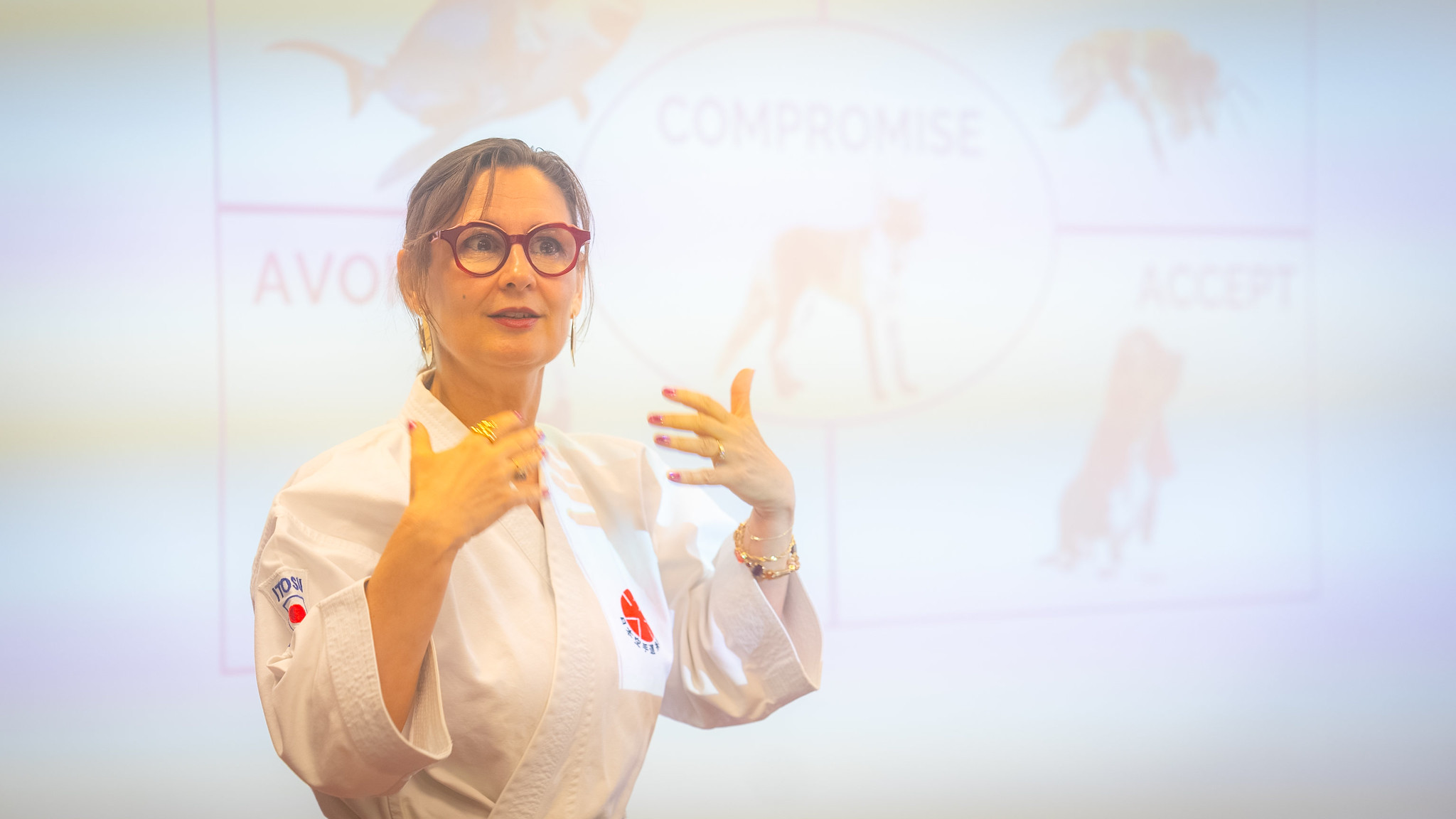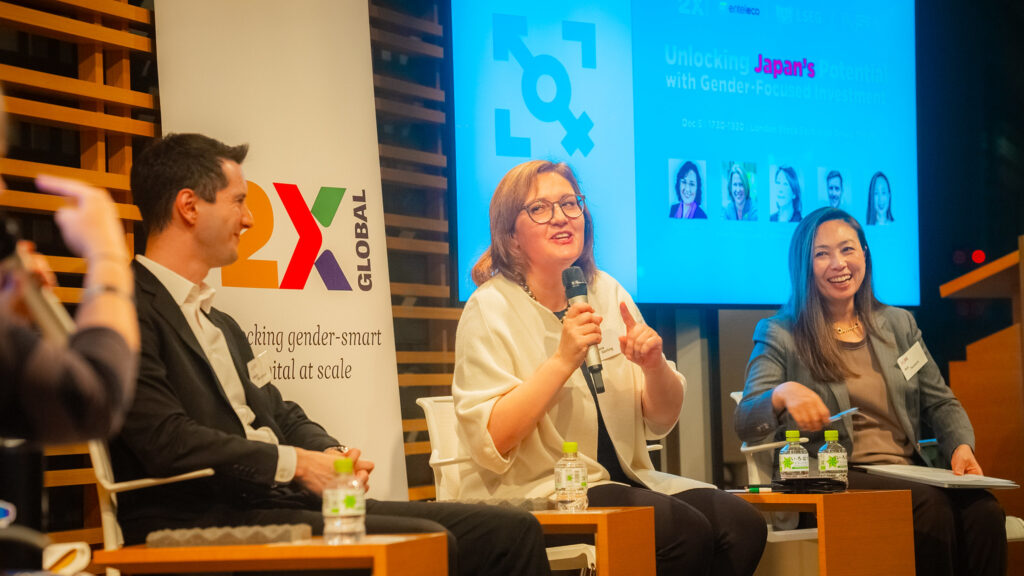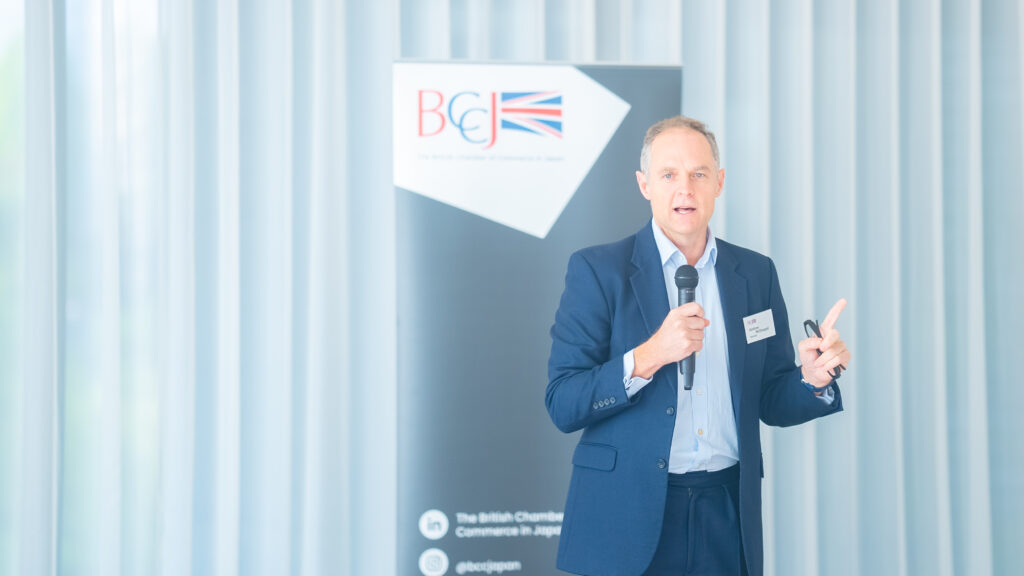Member? Please login
Foundations of Conflict Management: Masterclass with Helen Iwata

Written by BCCJ
September 20, 2024
Past Event Round Ups
How to deal with conflict in a less-effort, more-impact way was the topic of the British Chamber of Commerce in Japan’s latest interactive workshop, led by Helen Iwata, founder and president of Sasuga! Communications K.K., which “helps busy business professionals in Japan to do brilliant work without sacrificing their personal lives.” The company provides corporate training in presentation and communication skills, executive coaching and women’s success programmes.
The session began with an invitation to attendees to consider their degree of comfort with conflict. Iwata pointed out that each person would have a different response, not least because of the diverse group.
“We often think about conflict as a cultural thing. British culture and Japanese culture are both conflict-averse cultures. But it’s not necessarily culture [that affects our response],” she explained, noting that upbringing and life experiences are key factors.
She encouraged attendees to consider why conflicts occur, as a means of understanding how they can be best resolved. Rather than due to personal issues, disputes at work could be related to ideas, topics or projects, and might even result in positive outcomes such as better ideas and improved approaches, she said.
Causes of conflict
Iwata identified three main causes of conflict in the workplace. First, diversity—if managed in a way that does not foster understanding—can result to conflict. Second, remote work. Iwata identified in her book, published in 2016, that telework could result in conflict as it restricts communication methods and reduces opportunities for interaction between colleagues.
“When we do communicate while working remotely, it’s mostly text-based. People can read text in very different ways and it’s so easy to have a misunderstanding. We want to be very careful, and it’s important to increase the level of communication,” she said.
Finally, an increase in workload or the volume of information that staff need to deal with on a day-to-day basis can lead to more stress and less tolerance of different points of view, which can cause conflict.

Responding to conflict
People typically adopt one or a mix of five conflict resolution styles, each represented by an animal, she said.
- Shark: Fight (win-lose)
- Bee: Collaborate (win-win)
- Fox: Compromise (50-50)
- Dog: Accept (lose-win)
- Ostrich: Avoid (lose-lose)
Asked what type of conflict resolution style is best, Iwata noted that all of them have their merits; which one to choose depends on the importance of the task or topic being debated and the relationship you have with the other person.
For example, if a dispute is based on personal values or another human being’s safety, people are more likely to fight even if they typically avoid conflict.
Looking at relationship dynamics, if the relationship is important but the task or topic is not, it makes sense to accept the other person’s point of view, she explained. If it’s an important task or topic and an important relationship, it’s probably worth collaborating but if it’s an important task or topic and an unimportant relationship, it’s probably worth fighting for. Still, compromise may trump collaboration if both parties have a time constraint. If both the task or topic and the relationship are of low importance, why spend time on it, she asked.
While Iwata noted the many techniques used for conflict resolution, she said what has been most effective for her has been the following steps:
- Briefly and objectively state the problem, without judgement
- Ask the other person’s perspective and listen carefully
- Find common ground and seek a solution while understanding each other
“You can also better resolve situations with colleagues by getting to know them more and seeking to understand their perspective and what’s important to them,” she added.
Moreover, although many people find conflicts challenging, they are not necessarily a bad thing, she explained. As long as all parties involved show respect to each other and their opinions, disputes can play an important role in bringing new perspectives to the fore.
In closing, she encouraged participants who had said they lacked confidence in tackling conflict by saying that “confidence comes from competence, and competence comes from practice … The more you practice dealing with conflict, the more confident you will become.”
If you want to understand more about your own approach to conflict management and best practice for yourself or your team, please contact Sasuga Communications K. K. [email protected].







